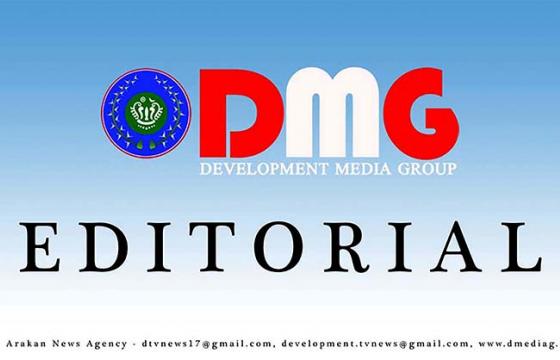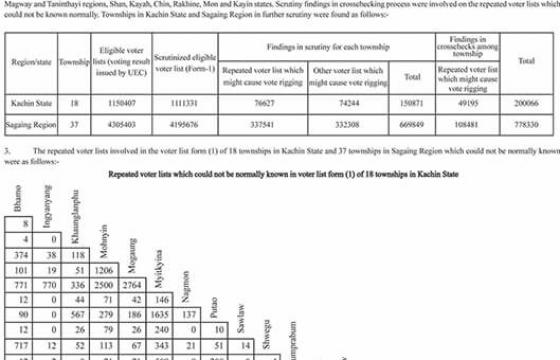True to her conviction and Aung San Suu Kyi determined to keep up with her self-drawn timeline, Union Peace Conference (UPC) will be held on 31st August, even though the Ethnic Armed Organizations (EAOs), particularly the United Nationalities Federal Council (UNFC), has requested that it need more time to iron out common positions with the Nationwide Ceasefire Agreement (NCA) signatory eight EAOs, on a variety of issues.
Earlier, when she was meeting the UNFC, a nine ethnic armies alliance, for the first time on 17 July, she said that according to Johanthan Powell, who was deeply involved in Northern Ireland conflict, said that it had dragged on for some 300 years for the timeline to solve the problem was not attached and thoughts were entertained that given enough time the problem would be resolved. But admitted that was wrong. That was why, she stressed, the time limit is an important part in resolving the conflict.
Spokesman for UNFC Khu Oo Reh, on 9 August, in response to Suu Kyi’s deadline said the EAOs would need more time to prepare for common positions among the EAOs’ signatories and non-signatories and mildly complained that being dragged into the peace process hastily won’t be beneficial for them. He stressed that the EAOs only need a bit more time.
Echoing Khu Oo Reh, Arakan National Party central committee member Oo Hla Saw recently told Radio Free Asia that even Pa-O National Organization, Pinlaung township MP Khun Maung Thaung, as chair of the Ethnic Affairs and Local Peace Committee, also a Union Peace Dialogue Joint Committee (UPDJC) member, was at lost regarding how representation of the elected MPs for the UPC would be chosen.
The UPDJC is the highest organ that oversees the whole peace process, made up of the government/military, EAOs and the political parties, each with 16 members, 48 altogether.
Other than that, Oo Hla Saw said it seemed the parliament has not been interested in the issue and no discussion made on it until now. The most frustrating thing was the participation quota, as this was said to be altered and still to be discussed.
He pointed out that the UPC concerned the ethnic nationalities most for they are the most to suffer from the civil war ranging among their midst.
Adding to the frustration is the failed attempt to make the three excluded EAOs’ – Kokang or Myanmar National Democratic Alliance Army (MNDAA), Ta’ang National Liberation Army (TNLA) and Arakan Army (AA) – inclusion in the peace process.
On 9 August, in Mong La, the government’s peace negotiation team, made up of former lawmaker Thein Zaw, former Lt-Gen Khin Zaw Oo and former information minister Aung Kyi, discussed on how the groups could participate in the peace process, the NCA and the Framework for Political Dialogue (FPD) review.
According to Tar Bone Kyaw the negotiation was said to have been unsuccessful and that disagreement arose on the choice of wordings for the to be released public statement of the three groups.
Tar Bone Kyaw said that it was hard to promise and sign the public statement using the wordings “to abandon the armed struggle”, to explicitly end the conflict, but were ready to accept the formulation of “to terminate the internal civil war” to really end the armed conflict.
It was agreed that both parties have agreed that the government’s delegation would carry the request of the three EAOs for further deliberation on the choice of wordings to their leaders – State Counsellor Aung San Suu Kyi and Commander-in-Chief Min Aung Hlaing -, while the three would discuss on how to go about further with the solution among themselves. However, no further exact date has been made to meet again.
Mixed and convoluted signals coming from ethnic EAOs leadership, such as Khu Oo Reh and Kwe Htoo Win of KNU futher complicate the already complex peace process.
For example, regardless of Khu Oo Reh’s sort of plea for more time that has fallen on deaf ears, to ready themselves in sorting out common positions among the EAOs, the Delegation for Political Negotiation (DPN) is participating in the recent Framework for Political Dialogue (FPD) amendments, although not clear whether its suggestion, as non-signatory EAOs, might be considered, given it’s just observer’s status without decision-making power.
For now, the UNFC’s political position of all-inclusiveness will be tested on the eve of the shattered negotiation between the three excluded EAOs and the government peace team, recently in Mong La. And for sure, people will be closely monitoring it’s move.
In this respect, the worry that the forthcoming UPC will fall into the same fate as Suu Kyi’s predecessor President Thein Sein is also real and that she might be residing over a conference, which is neither all-inclusive nor comprehensive like the first UPC held from January 12 to 16 of 2016.
Pundits have speculated that the crucial point of discussion will be on how the group participation structure is being worked out in the amendment of the FPD, which now seems that the former NCA agreement on it will be kept intact for the time being.
The present setting is seven group configuration, while the ethnic nationalities – Armed and unarmed – are for a tripartite dialogue, involving the government, parliament and military; the EAOs; and the registered political parties.
To this, Kwe Htoo Win has come up with a brilliant idea that during discussion the seven group setting could be used, while in decision-making the tripartite posture would be employed. The only problem remains on how this could be implemented on a practical term.
As it is, we all could only wait and see how the scenario will unfold. It might have been better to give the UNFC a bit more time; watered down the wordings so that the three excluded EAOs could participate in the peace process; and alleviate the frustration of the elected parliamentarians – and as well the non-elected political parties -, on how the peace process is to go about, including their part of responsibility and participation. But as this is not the case and the timeline of Suu Kyi is to be observed, we could only hope that things will work out positively and would pave way for a better tomorrow, made necessary by the UPC or 21st Century Panglong Conference.





